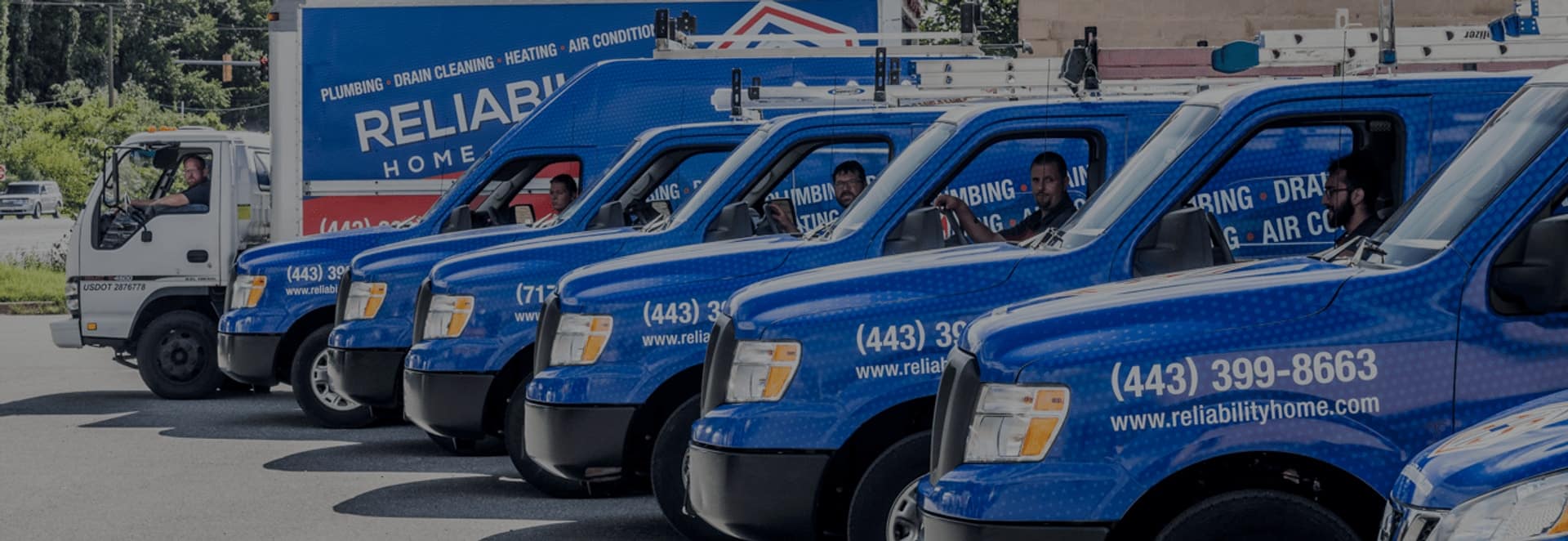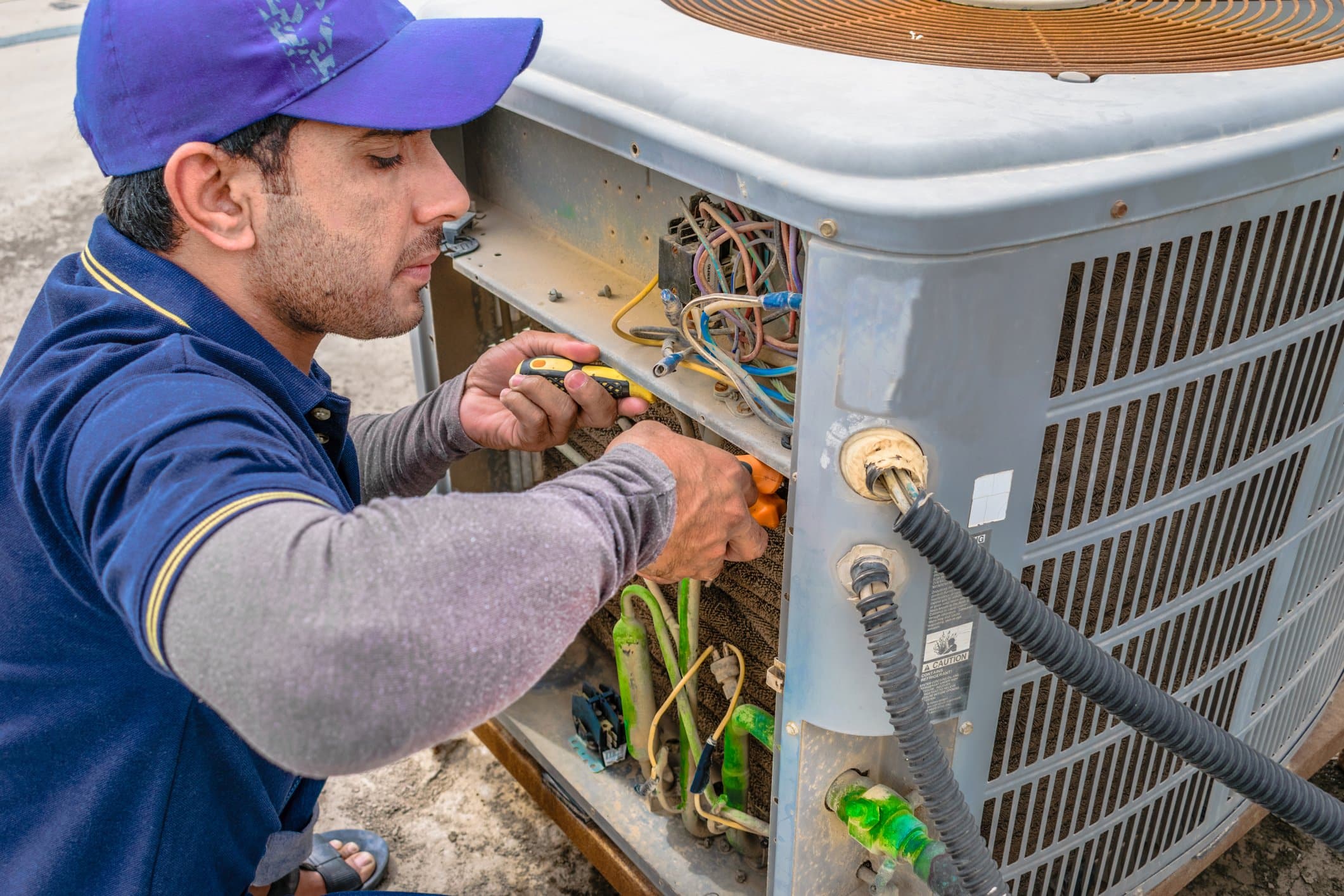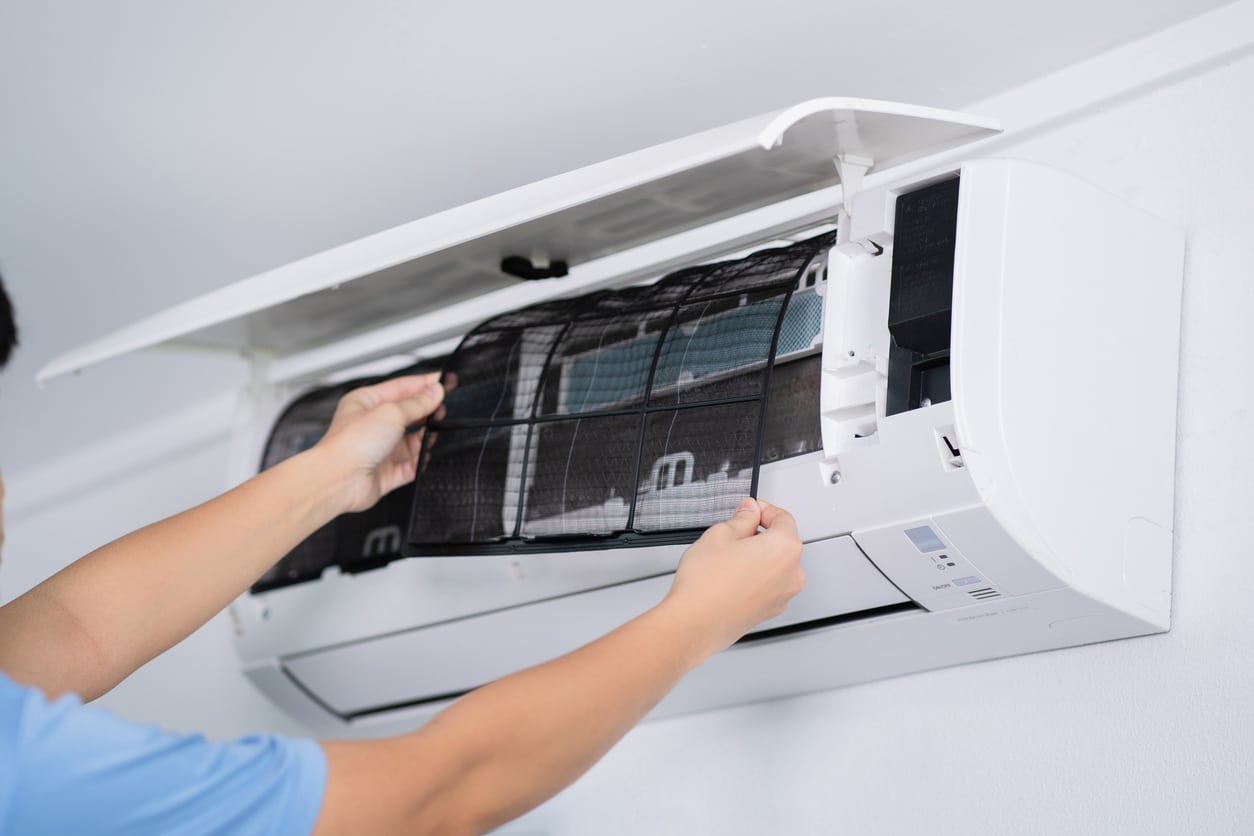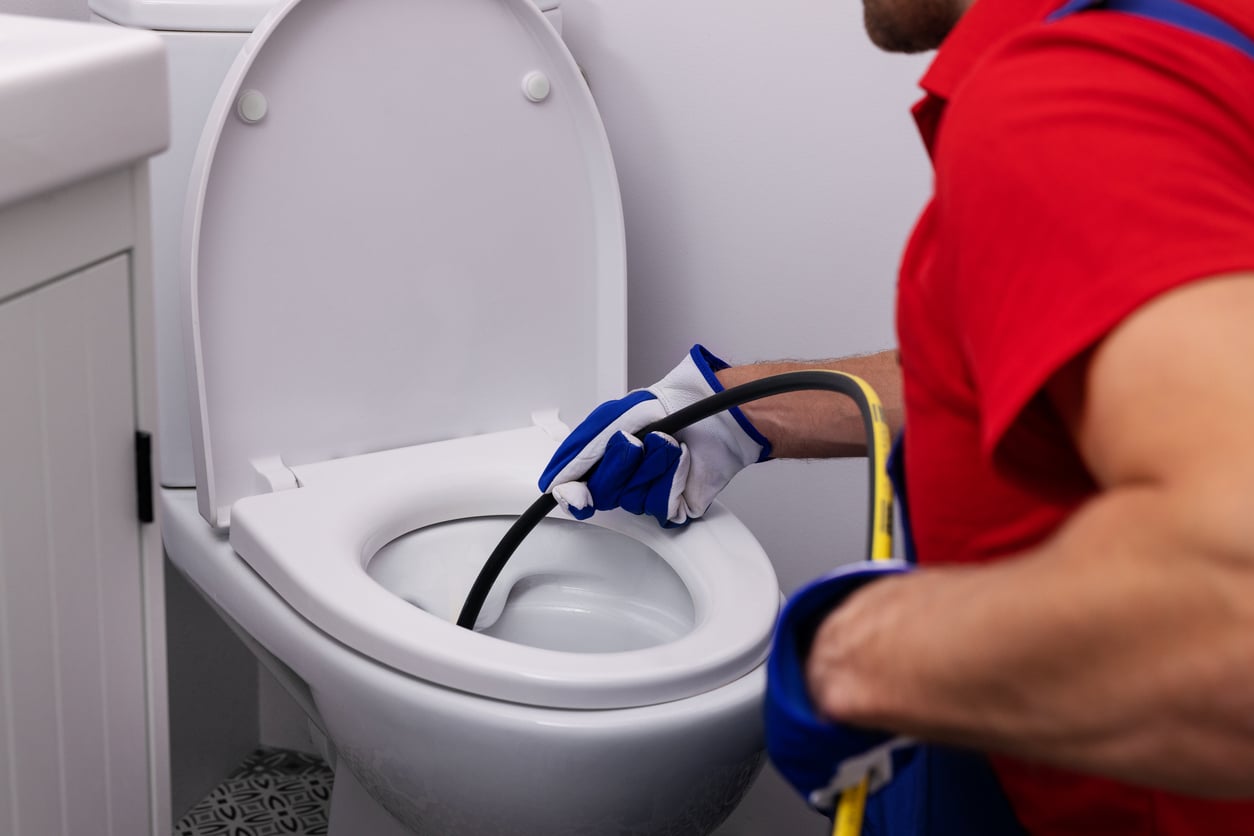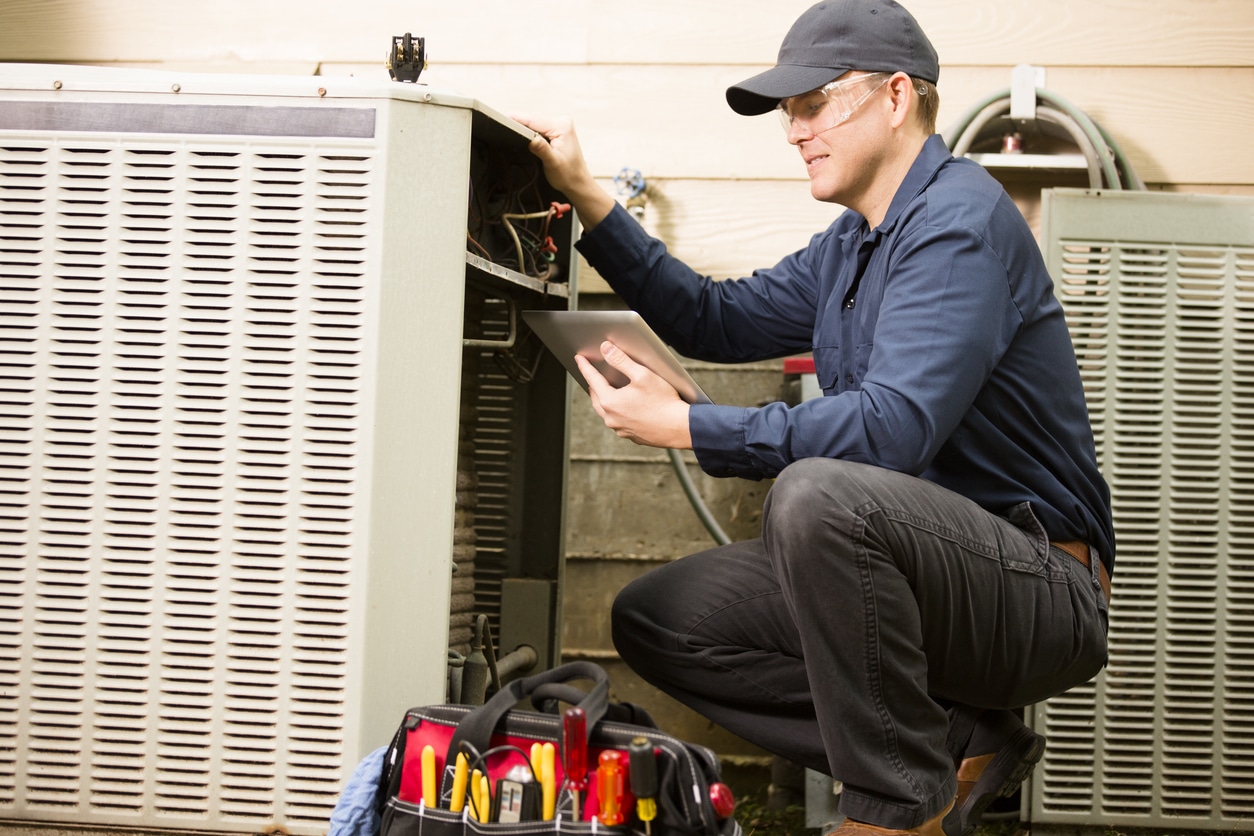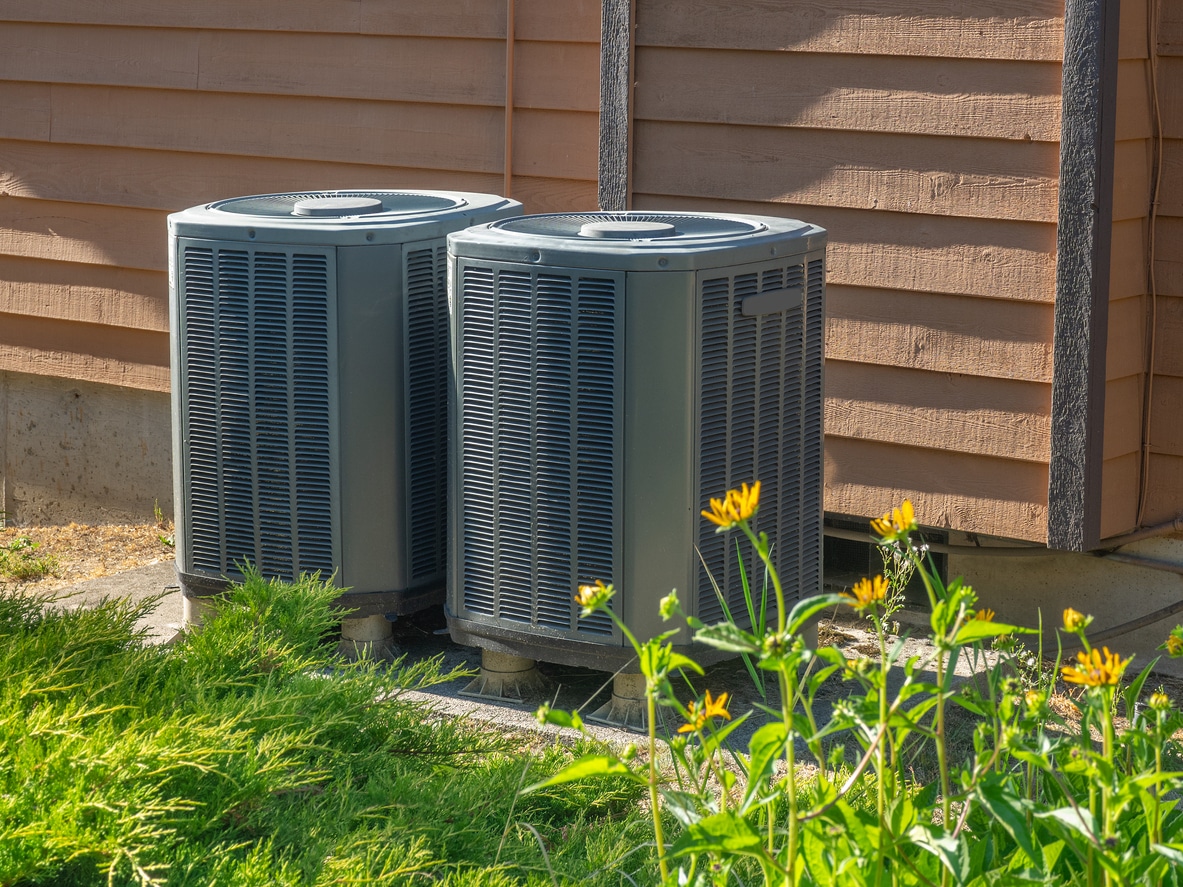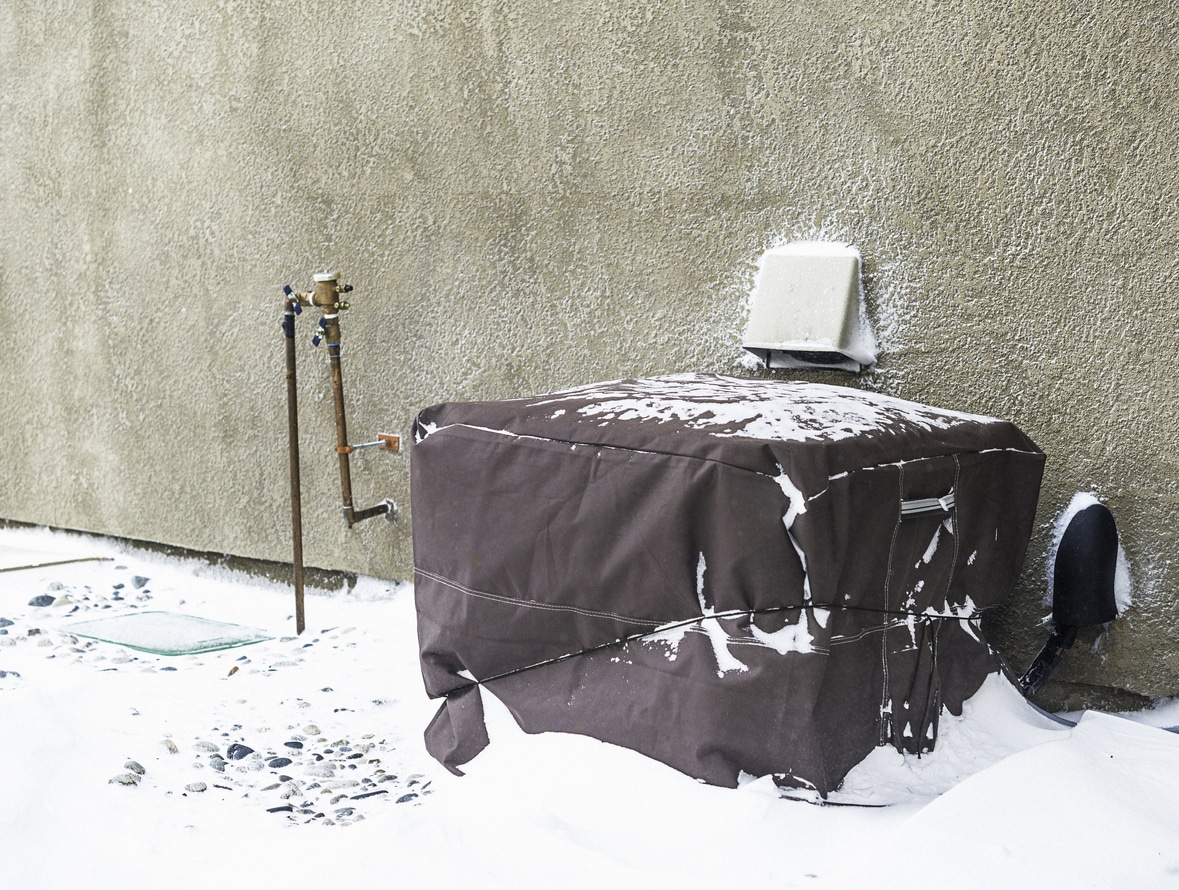Even though you have probably heard the term “HVAC” many times, you probably don’t know much about it. Check out this Stewarstown guide to what an HVAC is and how it works to develop a better understanding of your home’s heating and cooling system. Your knowledge could be what prevents the need for heating and air repair near me.
What is an HVAC?
HVAC stands for heating, ventilation, and air conditioning. Whether the system is in a residential or commercial building, it has the same purpose. The system includes various components to heat and cool the building.
The “H” in HVAC
The first letter in the HVAC acronym stands for heating. Although the word sounds simple enough, heating refers to one of many different types of heating systems. Whichever system you have, you can bet that it draws air into the ducts, heats it up, and recirculates it through your home.
If you have a heat pump as your heating method, it works in the same way that an air conditioner works. The system reverses hot and cold coils to change the modes from heating to air conditioning, or vice versa.
Meanwhile, a furnace system burns a fuel to heat your home. It usually relies on oil or natural gas to heat your building.
Which Heating System is the Best?
If you’re trying to decide which heating system to use, you might feel torn. There are advantages and disadvantages to each type of system. A heat pump serves the dual purpose of heating and cooling, so it’s only one machine. However, a heat pump goes through more wear and tear.
Additionally, a heat pump is more efficient than a furnace. You can enjoy lower energy bills while you heat your home.
A furnace tends to have a longer lifespan than a heat pump because it only serves one purpose. And the cost of fuel for furnaces tends to be lower than the cost of electricity for heat pumps. If you live in a particularly cold climate, a furnace is probably the best option for your heating needs.
The “V” in HVAC
First, let’s look at what the V stands for. The ventilation portion of the HVAC system is responsible for circulating air around a building. Typically, return and supply vents allow for the movement of air along with fans, ductwork, and filters.
This type of ventilation system is a forced air system. Without it, there would be no distribution of hot or cold air into your home. Even though the ventilation system is relatively simple, it’s just as important as the other components.
The “AC” in HVAC
In most HVAC systems, the air conditioning is split between an outdoor and an indoor unit. A compressor and condenser work outside and an evaporator coil works inside to cool your home.
In between the two units, there’s a copper tube. The tube contains refrigerant, which goes through phase changes to heat or cool your home. First, the refrigerant is a gas. A compressor pressurizes the gas and transforms it into a hot and high-pressure gas. It travels through the condenser and becomes a liquid, and gives off heat that blows outside of your home.
The refrigerant then goes into the evaporator coil and expands. As this occurs, the refrigerant decreases its pressure and boiling point. The liquid becomes a gas and takes in heat from the air around it. Because of this phase change, the air around the refrigerant is cooler. The cold air blows through the ventilation system and cools your home.
How to Keep Your HVAC Running
An HVAC system won’t last forever. But you don’t need to resign yourself to the fact that your heating and cooling system will need repairs. By working with an air conditioner maintenance service, you can keep your system in working order all year long.
Although you can opt for maintenance once a year, you should consider having a professional inspect your system even more frequently. They look for problems and prevent excessive wear and tear. With routine maintenance, you may be able to put off repairs and extend the life of your system. You can get the most from your HVAC.
Another way to keep your system working well is to change out the filters. Once every three to four months, pull out the filters in all of your vents. Replace them with clean filters to prevent undue wear and tear. You should also check the exterior unit of your HVAC system regularly. If you notice grass or other debris near the unit, cut it back or dispose of the debris. Your system needs good air flow.
Why Does It Matter?
You might be wondering why you need to know how your HVAC system works. After all, you probably will hire a professional to install, repair, or maintain your system. You don’t need to be an expert in heating and cooling to keep your system in good shape.
With that said, a little knowledge goes a long way. If you understand how HVAC systems work, you can be on the lookout for signs of trouble. When the time comes to install a new HVAC, you’ll have a better understanding of how the process happens. You can make an educated decision and work with a professional to pick the best system for your home.
Understanding how the system works comes with another benefit. Instead of neglecting seasonal maintenance, you might be more willing to care for your system.
Work with Us for Heating and Air Repair Near Me
No one can become an expert in HVAC overnight. Fortunately, you’re not alone in your endeavors. You can search for a reputable company to work on your HVAC system. The right company can handle all of your heating and cooling needs.
Here at Reliability Home Services, we’re ready to take care of your HVAC system in Stewartstown. When you’re looking for heating and air repair near me, call us. We can provide repairs, installation, and maintenance of your heating and cooling system.(443) 399-8663


